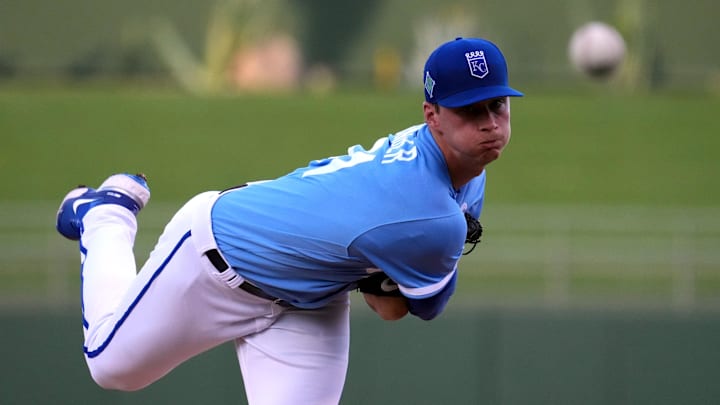Their new pitching coaches must meet the expectations of the KC Royals
The departure of pitching coach Cal Eldred was long overdue. Not much improved on his watch, a five-year mentorship of ever-struggling starters and relievers that last season had detractors increasingly clamoring for the dismissal that came only a few hours after Kansas City's final game of the year.
The lengthy search for Eldred's successor ended just short of two months later when the Royals hired Brian Sweeney, then Cleveland's bullpen coach and a former minor league pitching coach. The club then brought aboard Twins' assistant pitching coordinator Zach Bove as Sweeney's assistant.
The combined thrust of the moves is obvious: the Royals want the more analytic and data-driven approach to pitching that Sweeney and Bove seem poised to deliver. Sweeney is by all accounts a keen student and teacher of data and pitching mechanics and Bove, also a former minor league pitching coach, is known for relying on data and helping hurlers develop new pitches. Also telling about Bove is his official Kansas City title: not only is he Sweeney's assistant, he's also Director of Major League Pitching Strategy.
The good resumes, then, are there. But what if the two new coaches' collective performance doesn't match the promise those resumes evoke? Simply put, and considering the expectations sure to be running high on Kansas City's pitching staff after several substandard seasons, the Royals will be in considerable trouble.
Gone and replaced by frustration and anger will be the new hope hiring Sweeney and Bove ignited. Searching for answers will be the club's rotation and bullpen. Back to square one will be Picollo.
The Royals can't afford the disaster Sweeney and Bove failing will spawn.
